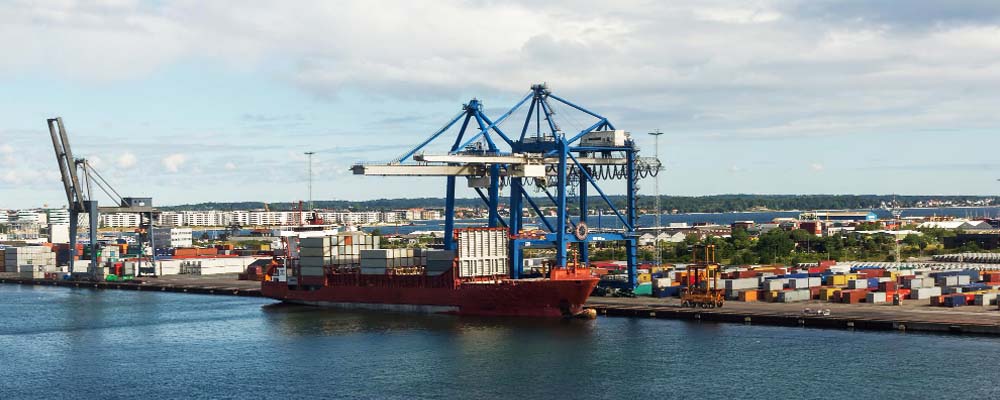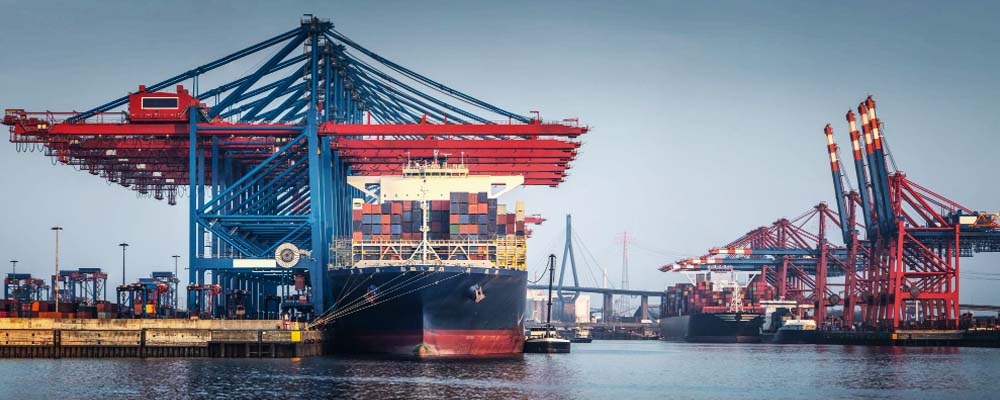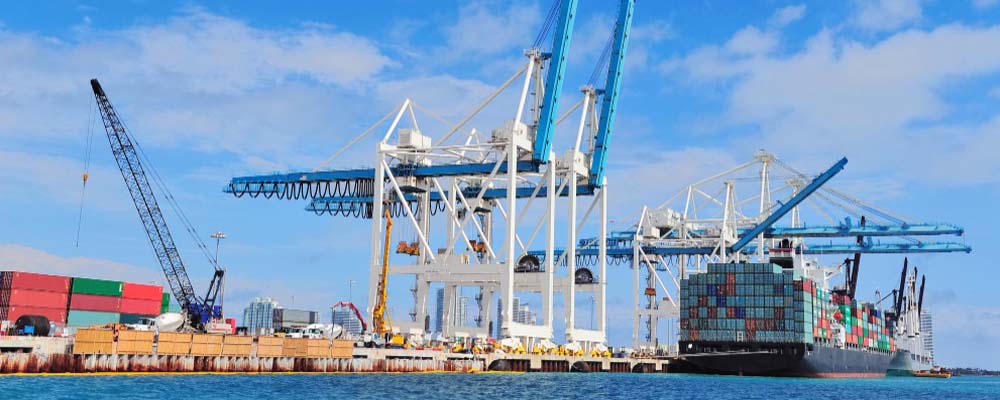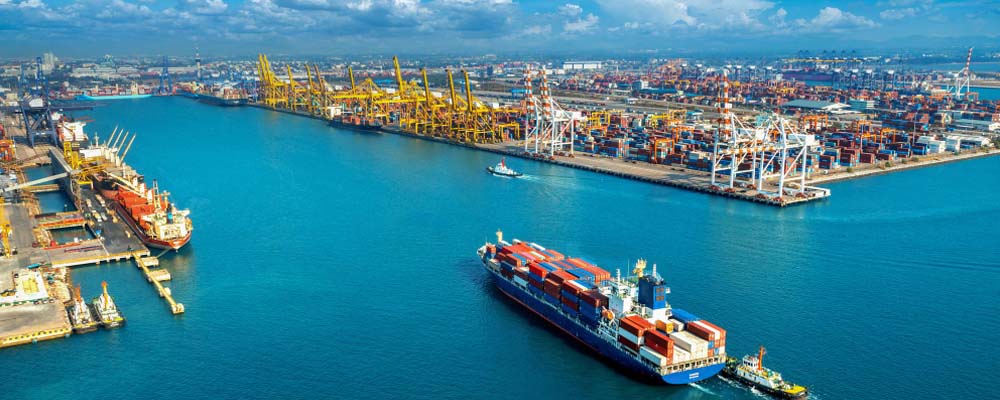
Portugal, with its strategic location at the crossroads of Europe, Africa, and the Americas, has emerged as a vital maritime hub in global logistics. Its ports are key gateways for international trade, catering to a wide array of industries, including freight forwarding, logistics, manufacturing, and e-commerce. In this comprehensive guide, we will explore the top five major ports in Portugal, highlighting their features, facilities, and significance in the global trade network.
1. Port of Sines (Porto de Sines)
Overview
The Port of Sines is the largest and most modern deepwater port in Portugal. Located on the southern coast, it serves as a critical hub for transatlantic trade and intercontinental shipping. Its strategic position makes it a preferred choice for freight forwarders and logistics providers connecting Europe to other continents.
Key Features
- Deepwater Terminals: The port can accommodate some of the largest vessels in the world, making it ideal for bulk carriers and container ships.
- Modern Infrastructure: Equipped with state-of-the-art cranes, automation systems, and eco-friendly technologies.
- Specialized Terminals: Includes terminals for liquid bulk, containers, LNG, and multipurpose cargo.
Significance
- Global Connectivity: Serves as a primary entry point for goods from Asia, Africa, and the Americas.
- Industrial Integration: Proximity to Sines Industrial Complex supports seamless logistics for petrochemical and manufacturing industries.
- Energy Trade: A major hub for importing and exporting energy commodities, including LNG and crude oil.
Key Statistics
- Annual container throughput: Over 2 million TEUs.
- Handles 50% of Portugal’s port traffic by volume.
2. Port of Lisbon (Porto de Lisboa)
Overview
Located in the nation’s capital, the Port of Lisbon is one of Portugal’s most versatile ports. With a history dating back centuries, it remains a central hub for trade, cruise tourism, and local industries.
Key Features
- Multi-Functional Terminals: Handles a diverse range of cargo, including containers, breakbulk, and ro-ro (roll-on/roll-off) cargo.
- Cruise Hub: A popular destination for international cruise liners, boosting tourism and local economy.
- Efficient Rail and Road Links: Well-connected to Portugal’s interior regions and neighboring Spain.
Significance
- E-Commerce Growth: Supports the booming e-commerce sector with fast container processing.
- Urban Integration: The port is deeply integrated into Lisbon’s economic ecosystem, facilitating trade and employment.
- Sustainability Initiatives: Actively pursuing green logistics practices, including shore power for vessels.
Key Statistics
- Annual throughput: Approximately 600,000 TEUs.
- Processes millions of tons of bulk and general cargo annually.
 3. Port of Leixões (Porto de Leixões)
3. Port of Leixões (Porto de Leixões)
Overview
Situated in the northern city of Matosinhos near Porto, the Port of Leixões is a key player in Portugal’s maritime trade. It is one of the busiest ports in the country, handling a significant portion of the national cargo volume.
Key Features
- Advanced Terminals: Includes terminals for containers, liquid bulk, dry bulk, and general cargo.
- Dedicated Logistics Park: Offers warehousing, storage, and distribution services.
- Integrated Transport Links: Excellent connectivity to road and rail networks, enhancing efficiency.
Significance
- Manufacturing Export: Supports northern Portugal’s thriving manufacturing and textile industries.
- Customs Clearance Efficiency: Streamlined customs processes attract importers and exporters.
- Regional Economy: Plays a vital role in the economic development of the Porto metropolitan area.
Key Statistics
- Annual container throughput: Around 700,000 TEUs.
- Accounts for 25% of Portugal’s port traffic.
4. Port of Setúbal (Porto de Setúbal)
Overview
The Port of Setúbal, located south of Lisbon, is a major hub for bulk cargo and vehicle handling. Its specialized terminals make it a key partner for manufacturers and automotive industries.
Key Features
- Automotive Terminals: One of Europe’s top ports for vehicle transshipment and export.
- Bulk Cargo Handling: Facilitates efficient movement of cement, fertilizers, and minerals.
- Strategic Location: Serves both domestic and international trade efficiently.
Significance
- Vehicle Export: Plays a critical role in Portugal’s automotive industry by exporting vehicles to Europe and beyond.
- Bulk Commodities: Integral for the export of bulk goods, especially from Portugal’s mineral and cement sectors.
- Industrial Collaboration: Close proximity to key industrial hubs ensures quick turnaround times.
Key Statistics
- Processes over 200,000 vehicles annually.
- Handles millions of tons of bulk cargo every year.
 5. Port of Aveiro (Porto de Aveiro)
5. Port of Aveiro (Porto de Aveiro)
Overview
Located on the western coast, the Port of Aveiro is a medium-sized port known for its efficiency in handling specialized cargo. It primarily supports the central region of Portugal, including logistics for nearby industries.
Key Features
- Specialized Terminals: Focused on dry bulk, liquid bulk, and general cargo.
- Industrial Support: Serves industries such as ceramics, paper, and chemicals.
- Intermodal Capabilities: Well-integrated with road and rail for smooth transportation.
Significance
- Energy Projects: Frequently used for offshore wind farm components and other energy-related projects.
- Regional Connectivity: Supports economic activities in Portugal’s central regions.
- Sustainability Focus: Actively implementing measures to reduce its environmental footprint.
Key Statistics
- Handles over 5 million tons of cargo annually.
- Significant contributor to regional employment and trade.
Why These Ports Matter for Your Business
1. Freight Forwarders
Freight forwarding companies benefit from Portugal’s advanced port infrastructure and global connectivity. The efficient handling of diverse cargo types ensures smooth operations, reducing lead times and costs.
2. Importers and Exporters
With specialized terminals and streamlined customs processes, Portugal’s ports cater to a wide range of industries, from automotive to agriculture. This makes them ideal for importers and exporters seeking reliable logistics solutions.
3. E-Commerce Businesses
The rise of e-commerce has increased the demand for fast and efficient shipping. Ports like Lisbon and Sines are well-equipped to handle containerized goods, ensuring timely deliveries.
4. Manufacturers
Portugal’s ports offer seamless integration with industrial zones, making them indispensable for manufacturers exporting goods or importing raw materials.
Trends and Innovations in Portuguese Ports
Digital Transformation
Many of Portugal’s major ports are embracing digitalization to improve efficiency. From automated cranes to blockchain-based supply chain solutions, these innovations enhance transparency and reduce delays.
Sustainability Initiatives
Portugal’s ports are increasingly adopting green practices, such as shore power systems, eco-friendly cranes, and renewable energy projects. These measures align with global sustainability goals and reduce carbon footprints.
Expansion Projects
To meet rising demand, ports like Sines and Leixões are undergoing expansion projects. These include adding new terminals, deepening berths, and improving intermodal connectivity.
Choosing the Right Port for Your Needs
When selecting a port in Portugal for your business operations, consider the following factors:
- Cargo Type: Identify whether your cargo is bulk, containerized, or specialized.
- Proximity to Markets: Choose a port that offers efficient connectivity to your target markets.
- Customs and Regulations: Opt for ports with streamlined customs processes to minimize delays.
- Sustainability Goals: Align with ports that support eco-friendly logistics practices.
 Conclusion
Conclusion
Portugal’s ports are pivotal to its role as a global trade hub. From the deepwater capabilities of Sines to the automotive focus of Setúbal, each port offers unique advantages tailored to specific industries. By leveraging these ports, businesses can enhance their logistics strategies, reduce costs, and expand their global reach.
Whether you are a freight forwarder, manufacturer, or e-commerce business, understanding the strengths of Portugal’s major ports will empower you to make informed decisions and stay ahead in the competitive world of global trade.
Ready to enhance your supply chain through Portugal’s ports? Partner with industry-leading logistics providers and explore opportunities to streamline your operations. Contact us.




 3. Port of Leixões (Porto de Leixões)
3. Port of Leixões (Porto de Leixões) 5. Port of Aveiro (Porto de Aveiro)
5. Port of Aveiro (Porto de Aveiro) Conclusion
Conclusion



